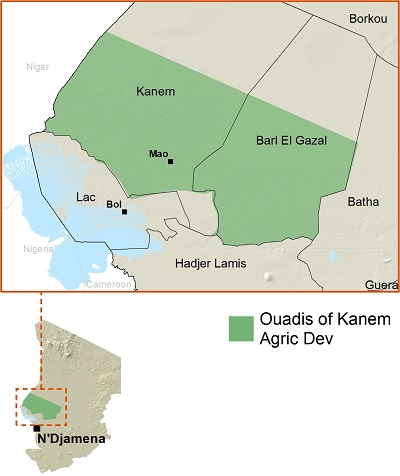Ouadis of Kanem Agricultural Development Project
IFAD Asset Request Portlet
Agrégateur de contenus
Ouadis of Kanem Agricultural Development Project
Ouadis of Kanem Agricultural Development Project
The intense drought in the 1970s and 1980s weakened and degraded the natural resource base in the Kanem region. Over time encroaching sand dunes have threatened to engulf hundreds of villages and seasonal river beds called ouadis. The local population, especially women, are engaged in laborious clearing and dredging work. Rainfall is uncertain, and traditional crop and livestock farming have become precarious. Low farm productivity has led to a serious and permanent food deficit, nutritional deficiencies and low incomes.
The project was financed by IFAD under the special programme for Sub-Saharan African countries affected by drought and desertification. The project's objective was to improve food security and family incomes through more efficient use of land and water resources. Its first imperative was to safeguard the ouadis and villages by protecting against wind erosion and sand dune encroachment. The project helped boost rainfed cultivation, and helped develop irrigated farming on the ouadis to increase the production of cereals and new crop varieties. It also introduced date palms, fruit trees and goats.
Other project activities included:
- encouraging farmer groups to take charge of the drying, conservation and transportation of agricultural products
- reforestation and other measures to protect the area from the encroachment of sand dunes
- drilling new boreholes to create village water points
- helping set up 30 cereal banks for food security and savings
- helping farmers form grass-roots organizations, and building the capacity of farmers’ organizations to manage their own environmental and developmental activities
- improving educational and health services
Because women play a significant role in food production and marketing, the project encouraged them to become involved in project activities. The project was particularly successful in empowering rural women, and its investments in village waterworks and health infrastructure were of particular benefit to women. Loans made to local women had the best repayment rates and positive results.
Source: IFAD
